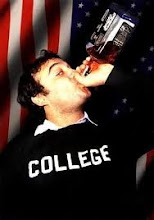The recently released biography of General Douglas MacArthur by popular historian, Mark Perry (The Most Dangerous Man in America - The Making of Douglas MacArthur, 380 pps., Basic Books, 2014) is wonderfully insightful, but also troubling for two reasons.
First, in his afterword, Perry cites an "informal internet poll" that ranked MacArthur the worst American commander ever. Even Benedict Arnold came in only 2nd.
Aside from the shaky value of the cited source, it's possibly a troubling sign of the all-pervasive leftist orthodoxy that has been exerting a stranglehold on American higher education.
That the brilliant architect of the lifesaving WWII "Operation Cartwheel" in the Southwest Pacific, the liberation of the Philippines and the masterstroke Korean War, Inchon invasion, should be considered anything other than the greatest American military commander of the second half of our nation's existence, would be laughable if it weren't so terribly dangerous.
One can only think that neo-Marxists in academia are still smarting over MacArthur's authoritative and unilateral expulsion of Stalin's subversive Red Army operatives from occupied Japan in 1946.
Second, the book is also a bit troubling for its non-germaine, obviously commercially-driven title.
"The Most Dangerous Man in America" as a description of Douglas MacArthur, was an utterance made by Franklin D. Roosevelt at an informal luncheon in 1932.
The then Democrat presidential nominee was expressing his fear that MacArthur, a celebrated World War I officer, US Army Chief of Staff and well-connected Republican might be the only American on the political landscape able to thwart his electoral ambitions.
 |
| MacArthur (L) and FDR (C) had a love-hate working relationship |
The title really has little to do with the autobiographical nature of Perry's wonderfully lucid book. One can only surmise that one of the marketing geniuses at Basic Books figured it was a catchy title that would help books fly off bookstore shelves or Amazon on-line book sites.
This account of MacArthur's life basically takes us from the 1930s prelude to World War II through the September 2, 1945 unconditional surrender of the Imperial Japanese to MacArthur aboard the USS Missouri.
It's by no means as comprehensive as William Manchester's celebrated 1978 biography, American Caesar, which takes us in great detail from the great General's birth in Milwaukee in 1880 to his 1964 death at West Point.
Consequently, it stops short of several of the signal events in MacArthur's life - his role as Supreme Commander of the occupying forces in Japan (where he, in fact, wrote the Constitution under which Japan still operates), his brilliant Inchon invasion, which saved South Korea from communism and his 1964 deathbed warning to President Lyndon Johnson to avoid a land war in Viet Nam.
But as a riveting account of the intricacies of the Army-Navy rivalries that both plagued and strengthened the US war effort in the Pacific, Perry's account is unrivalled.
And the detailed account of the ambivalent love-hate working relationship between FDR and MacArthur, most of which is derived from first hand accounts of those who were there, is unavailable anywhere else.
In today's toxic Obamaite climate, American exceptionalism is constantly under assault from the elementary school to the university post-graduate level by the thinly-veiled neo-Marxist doctrines of multiculturalism, diversity and critical race theory.
Mark Perry's "The Most Dangerous Man in America - The Making of Douglas MacArthur," is a very welcome antidote to that and a reminder of American exceptionalism as embodied in one of our greatest American heroes.














No comments:
Post a Comment
Comments invited, however anonymous commentors had better deal directly with the issues raised and avoid ad hominem drivel. As for Teachers' Union seminar writers -- forget about it.